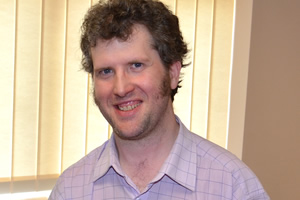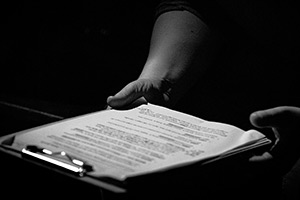Interview with The Infinite Monkey Cage's producer
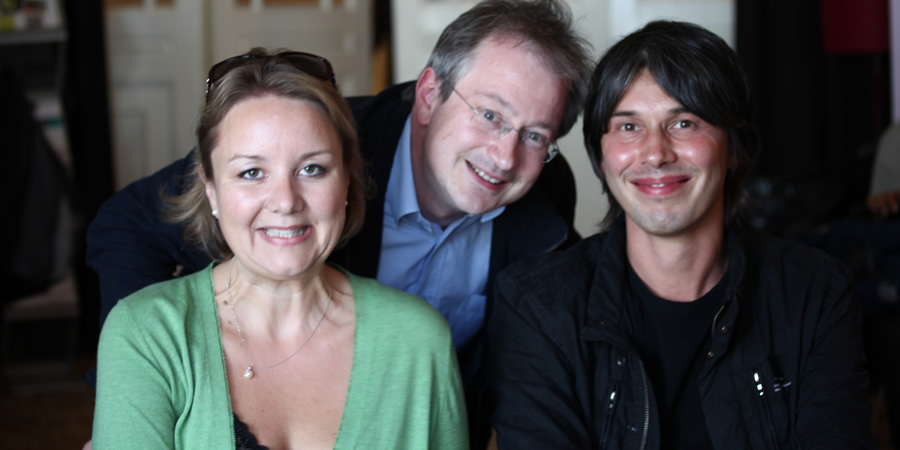
The Infinite Monkey Cage, the Radio 4 show hosted by Professor Brian Cox and Robin Ince which mixes science and comedy, is now in its 20th series. Here we talk to producer Alexandra Feachem (sometimes credited as Sasha Feachem) about the format and her role in the show.
Before The Infinite Monkey Cage, what was your view of using comedy in science communication?
Well, I don't think I had a particular view. I was always a big fan of comedy, and lots of different comedians.
It wasn't until Professor Brian Cox and I went to CERN for the switching on of the Large Hadron Collider, to do a whole day of broadcasting for Radio 4 as part of Big Bang Day, that in talking to Brian I realised there was a few well known entertainment people who had shown an interest in particle physics.
Obviously people like Ben Miller and Dara O Briain are well known now for having backgrounds in science. But, at the time, I certainly wasn't aware of it.
We took Ben Miller to CERN with us, and Brian and Ben got on so well. I was a huge fan of Armstrong & Miller already. That was really when we started thinking, 'Gosh, this would be amazing to do something with these comedians who have actually got an interest in science!'
And then, of course, he's discovered loads more, but Ben and Dara were in an original programme, Physics Rocks, and that really started it all off.
I saw it as a brilliant idea. I love comedy in anything, and I've always been very keen to make programmes that are as accessible as possible, using whatever means you can to sell science to a large audience.
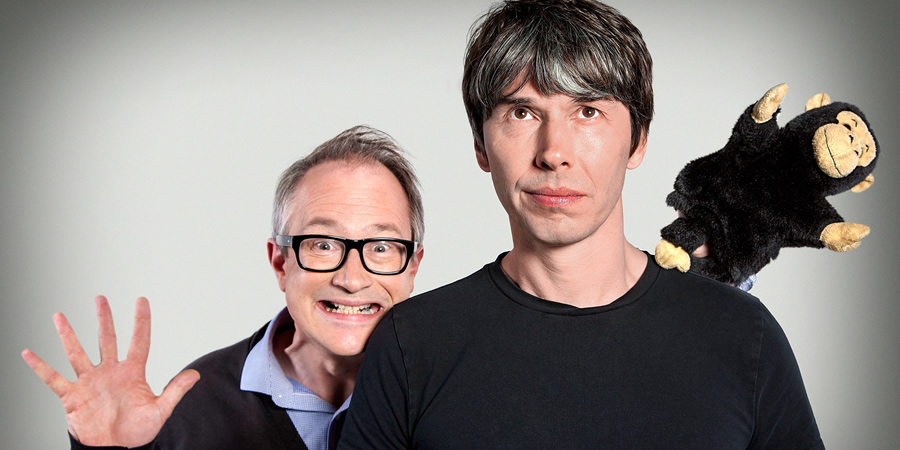
What made you and Brian pick Robin Ince as the co-host, over say Dara or Ben?
I wouldn't say "picked" because I would say that Monkey Cage really comes from Brian, Robin and I as a threesome, and also the chemistry between Brian and Robin.
The original idea that went to Radio 4 was Brian and two science co-presenters. And we did a pilot for that show - the idea was that we would have a comedy guest each week, and so for the pilot, that comedy guest was Robin, because he was already doing these wonderful science and comedy evenings and he'd really started that genre in terms of live comedy performance. So he was doing his Nine Lessons and Carols for Godless People, which mixed scientists and comedians, and he was recommended to me, so we asked him to be the guest. And he was on a phone for the pilot, and it was just so obvious, the second he was on the show...
He was absolutely brilliant. He was so funny, knowledgeable, wonderful, and very very quickly, we realised that Brian with the two other scientists - who were both fantastic - all sounded the same. They were sort of young male scientists, all coming from exactly the same viewpoint, all knowing the same stuff, so there was no reason for each individual one to be there. But the Brian and Robin combo was just fantastic. They knew each other a little bit before already.
So then that's when we said to Robin, "Do you want to co-present?" and that's where The Infinite Monkey Cage came from. And I have to say, the idea for the title, it's Robin's title; he came up with that.
The way the show is now is totally to do with Brian and Robin and me, as the threesome.
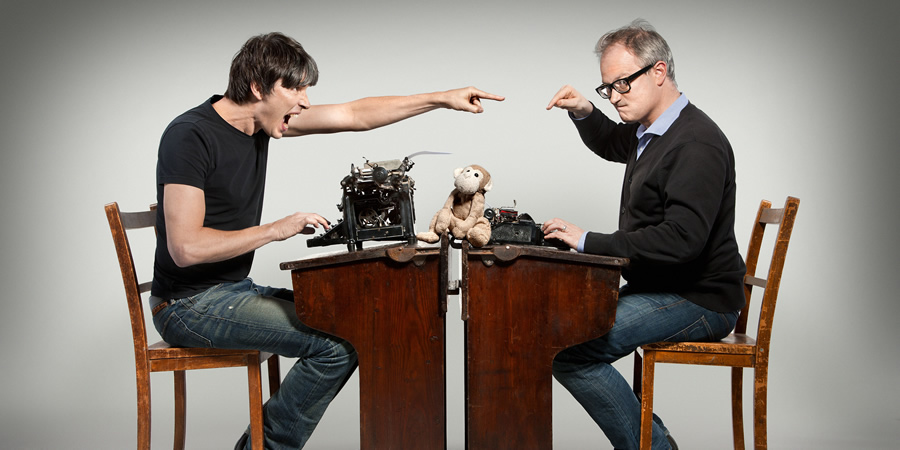
What unique qualities does Robin bring to the show?
Obviously, Robin isn't a scientist by training. He has a bachelor's degree in English and drama. So he sort of very much represents the layperson, but despite what he claims on the show, he's a very well-informed layperson. He's very well read and super-enthusiastic about science and all the ideas that we cover. But he's really the way in for a lot of people, and obviously, he's just incredible funny.
We need him, frankly. The show needs him, because otherwise it would be Brian talking about very difficult particle physics for 45 minutes.
The challenges of bringing a hybrid science-comedy show to air are obviously different to that of a 'pure' strait-laced science show. It must be tougher to please both the science community and comedy crowd?
Yes. First and foremost we are a science show, so the science is absolutely at the heart of everything that Monkey Cage does. So that sort of is the first priority.
But I think the hardest is often the comedy, rather than the science. The science, I know will be there, whatever happens, because we always have two science experts on the show. The hardest work comes from the comedians and Robin, to work the comedy in.
We choose the panel very carefully to make sure we get just a wonderful eclectic mix of people who you wouldn't normally find on a stage together, and from that, this kind of chaotic magic appears; we hope.
Have there been any comedians who've really surprised you when it came to their science knowledge, and conversely, have any of the scientists been particularly funny?
Well, yes. Comedians are just the cleverest people to work with, because obviously they write their own material, normally, and they're so well informed. They're always looking for interesting things to talk about during their sets and so on...
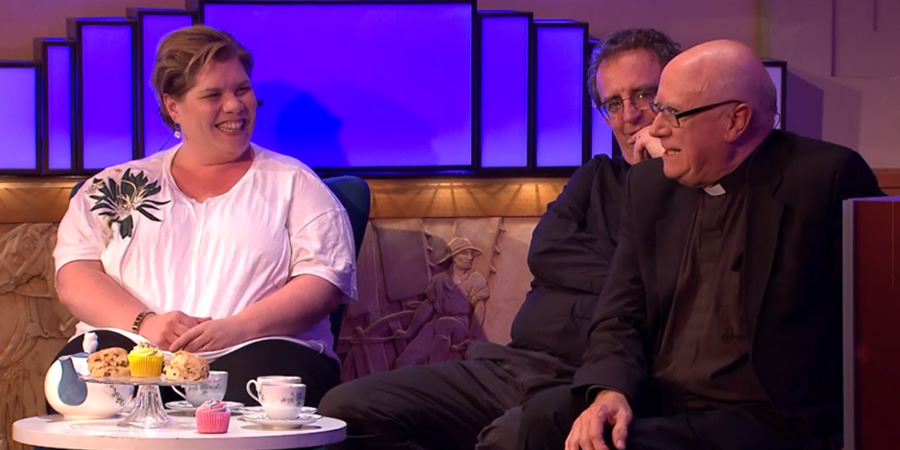
We've had people sitting on there with Nobel prize winners who can totally hold their own. There's the obvious ones like Ben Miller and Dara who do have backgrounds in science, and particularly in physics, but Katy Brand has been one of our most regular contributors and having her on the panel has just been an absolute joy, because she does ask the questions, as well, from the layperson's point of view, but she's also extremely intelligent, extremely thoughtful.
She really does ask the questions that lots of people would love to have asked, and always makes great insights. So she's definitely one who's been a surprise. Her background is in theology, which is why we always make the jokes about theology. She did a degree in theology, though obviously moving swiftly onto comedy after that.
Jo Brand is always an amazing contributor. She's got a background in psychiatric nursing.
The scientists we choose, we always say to them, "You don't have to be funny to be on the show. You just have to be interesting and informative. Making the jokes is not your job." But we obviously choose scientists who are very used to being in the public eye and to popularising science, as well as being experts in their field.
We've had some brilliantly funny scientists on the show. I'd say the funniest scientist is Brian, who again, learnt early on it's not his job to be funny. He is hilarious. He's really funny. He's made some of the funniest jokes I've ever heard - he always says, "My goal is not to set out to be funny, and if it happens along the way, great." And it does!
Were there any shows where the editing was incredibly tough? Has the introduction of the extended podcast helped?
Yes, it has enormously. We are quite chaotic. If you come to a record, we record for about an hour and 20 minutes and we do start with a script...
Brian and Robin start with a script, which they absolutely never stick to. So they are a producer's nightmare, in that sense. And at the beginning, I used to tear my hair out, because if they said, "Hello, I'm Robin Ince and I'm Brian Cox", I was really lucky. In fact, I'm still really lucky if they manage that. And then sometimes they'd forget to introduce the guests, all sorts of things.
I'd have to stop the show right at the beginning and say, "Can you say the names of the people? It's radio!" But actually, what the podcast has meant is that kind of chaos is allowed to be kept in for the podcast - we could keep it in for the Radio 4 show, as well, that's not against the rules. It's just that you only have half an hour, so it means we're allowed to keep more of the chaos in, and the audience really love that.
Since the show started being in front of a live audience, the live audience love it, the home audience love it, and so we can keep a bit more of that kind of very "unproduced" organised chaos.
We have a theme for each show, we have the guests and everything, we have always some questions beforehand, we have scripted an intro, but it never sticks to it and it's really like listening to a very intelligent, funny conversation. You're never quite sure where it's going to end up. It's sort of had to become our USP.
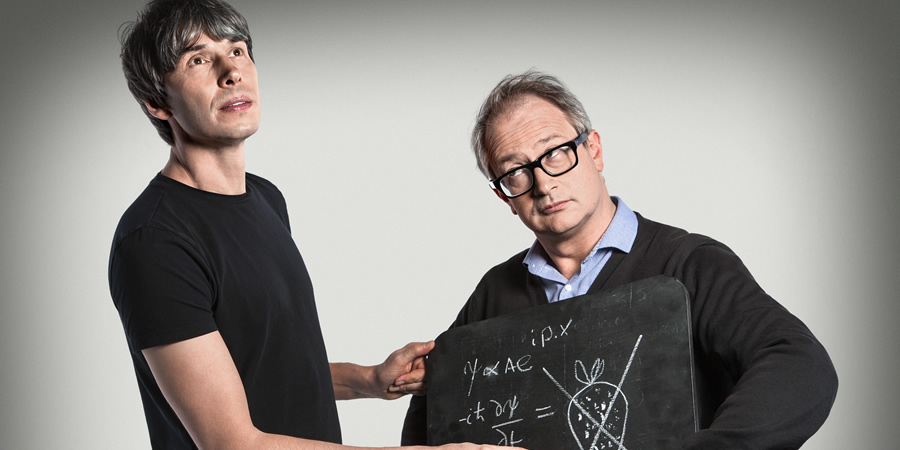
What would you say to someone considering radio production - what were your first steps and would your background dictate your direction?
Yes, so mine did. I did a science degree and then went into science broadcasting very shortly afterwards.
I actually started on the news desk at national public radio (NPR) in the States, doing science news out there, and then I came to the BBC about 18 months, two years later. Again, to do a science programme, The Material World, and then to the Radio Science Unit. And I've been there ever since, in the Radio Science Unit, pretty much, give or take a few attachments elsewhere.
So most of us in the science unit come with a science background. Not everyone, but most of us do. We are a specialist unit. And that's kind of what I've stuck to, and then it's been wonderful to be able to branch out in the last 10 or so years to involve comedy as well, which I've always loved. So it's amazing to combine science with entertainment and comedy, as well.
Did winning a coveted Rose d'Or award help in securing some big-name guests, who previously might not have agreed to appear?
No, because people have been so generous and wonderful about coming on.
The Rose d'Or was amazing and the show that we won that for featured Stephen Fry. People like Stephen Fry have been fantastically generous at coming on the programme and we get amazing people who've got nothing to plug, who are coming on for very little money, actually, and just really generous with their time because they love the topic, and they just love science, they love being part of something very different, for a lot of them.
We've really been incredibly lucky at the amazing names who've said yes. People like Sir Patrick Stewart, and Brian Blessed, Jo Brand, Rufus Hound, all these people who have been quite regular over the years. They kind of do it because they know Robin, they love Robin, they love Brian, they love the theme, they get to learn about something interesting or talk about something that they wouldn't normally get to talk about. So we've been super-lucky.
I always stick the Rose d'Or on at the end of every email, but I don't think it's made a huge amount of difference except it was an incredible honour to win it, obviously.
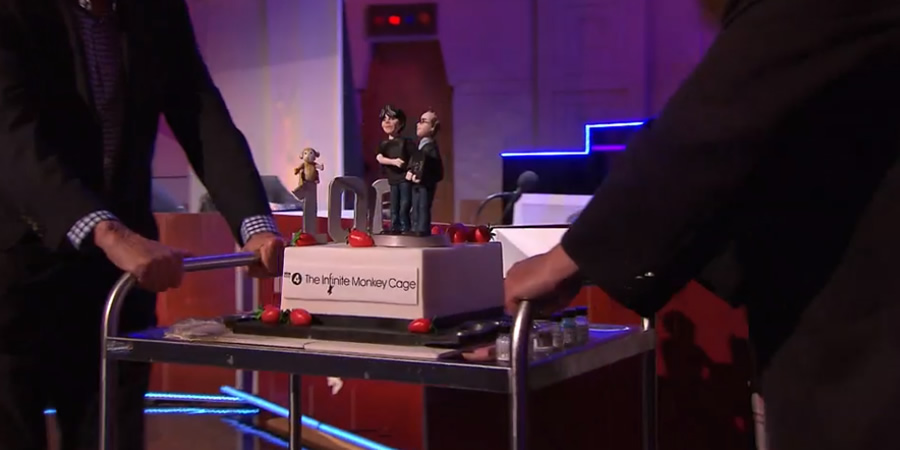
Finally, were you surprised by the response to one of the questions asked: "Strawberry - alive or dead?"
Oh, my word, who would have thought this aside comment in a show that we did years would run and run and run. Yes, that was Katy Brand - it was actually about something completely different. It was all about improbable scientific research, and we had Marc Abrahams on, who runs the Ig Nobel awards, which goes with sort of weird areas of scientific research, and it was all about that.
He was actually talking about Andre Geim, who discovered graphene. Andre Geim is the only person to have won an Ig Nobel as well as a Nobel prize. And he's describing this experiment with these levitating frogs and he said something like, "Oh, you could do it with anything. You could do it with a dead strawberry." At which point, Brian chips in and goes, "When do you know if a strawberry's dead?" And that question has just gone on and on and on and on.
It got picked up on Twitter and the audience love it, and it gets mentioned all the time. And actually, in our 100th episode, our cake had strawberries on it. I think the strawberry is never gonna die, basically. The strawberry will never die! And we've done several shows following up on that about what is death, we've done forensics and all sorts, all triggered by trying to know if a strawberry is dead or alive.
The Infinite Monkey Cage is on Radio 4 on Mondays at 4:30pm. You can catch up on all 100+ episodes via the BBC website
This article is provided for free as part of BCG Pro.
Subscribe now for exclusive features, insight, learning materials, opportunities and other tools for the British comedy industry.

